Is Coconut Oil Safe for Dogs?
With countless pet goods in the market pumped full with hard-to-pronounce (and quite frankly, dangerous) chemicals and substances, we may be doing more harm than good for our beloved dogs. Going natural is indeed the best road to take to ensure overall canine wellbeing, and there’s one particular product that is making a lot of buzz for being an all-around health care solution. But before we get all excited, first things first: Is coconut oil safe for dogs?
In all its humble simplicity, it’s one of the best things you can give your beloved canine friend! Coconut Oil has been proven in aiding the improvement and maintenance of digestive, skin, and overall health—and it doesn’t hurt that it is very agreeable to your dog’s tastes buds, too.
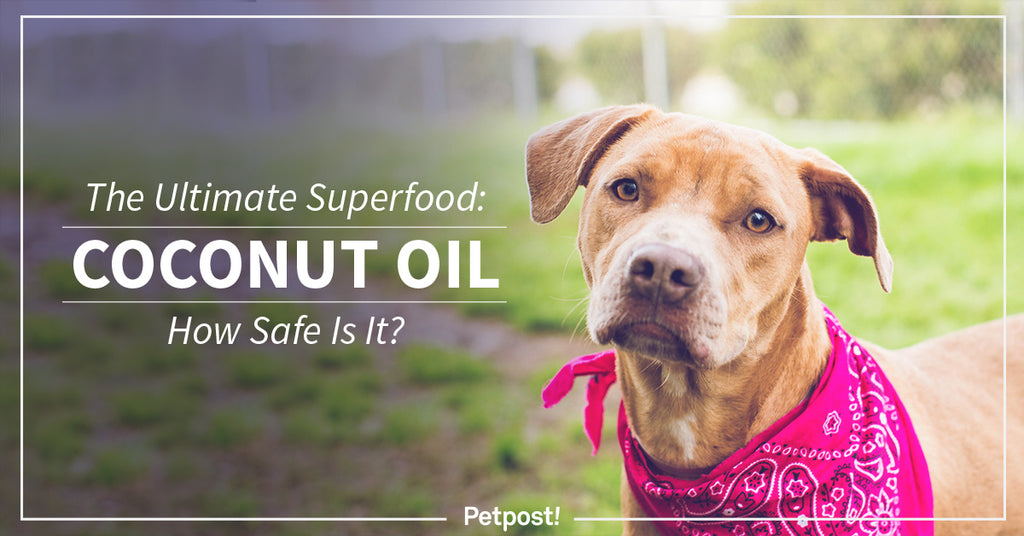
When did fat become so good?
Giving coconut oil to dogs, whether topically or orally, seems like an unusual route to take—especially since it’s, well, oil.
Coconut oil is mainly composed of saturated fats, and luckily, it’s got all the good stuff. They provide a multitude of health benefits, mostly from medium chain triglycerides or MCTs.
It’s a confusing mouthful, yes, but don’t drift off just yet—we’re getting to the awesome part. MCTs in coconut oil do wonders for your dog’s body:
- Improves overall digestive health;
- Has Lauric acid, well-known for its proven antibacterial and antifungal properties;
- Provides energy and prevents obesity
- Maintains good thyroid condition;
- Supports the immune system
- Keeps the skin and coat healthy and shiny
The Lauric acid, Cypric acid, and Caprylic acid in coconut oil is safe for dogs and has wonderful antibacterial, antimicrobial, and antifungal properties that protect your dog’s health, without harming his liver or kidneys—how great is that?
Happy Tummy, Happy Doggie
Giving your pooch the best meals is futile if he isn’t properly absorbing the right amount of nutrients. Poor digestion can lead to constipation, malnourishment, diarrhea, or irritated bowels—it could get rather unpleasant for both dog and human.
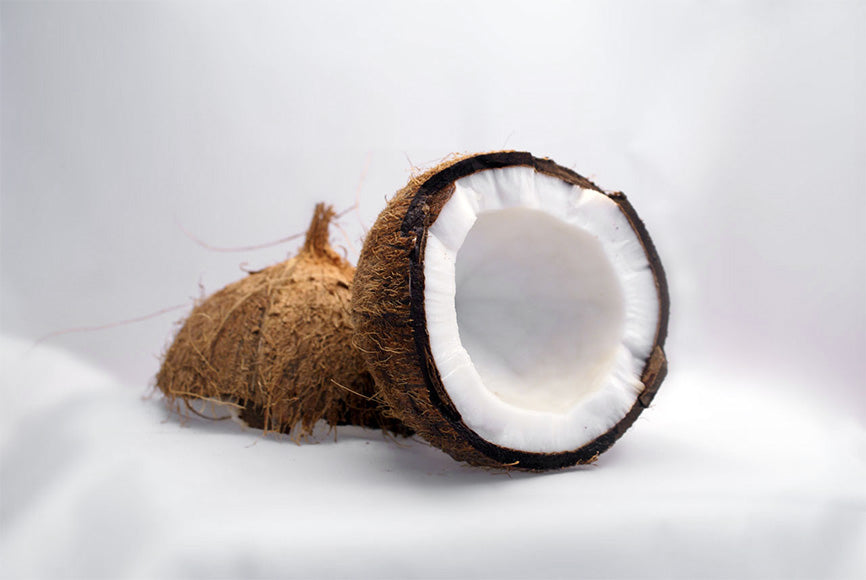
You can prevent these health mishaps by sprinkling Virgin Coconut Oil (VCO) on Spot’s regular food everyday to help his digestive system function more effectively, and assist in healing of some illnesses such as Inflammatory Bowel Syndrome (IBS), and even Colitis.
It may seem unlikely, but coconut oil also gently enhances metabolism in dogs and provides a good kick of energy and stamina. Coupled with exercise, a diet with a healthy dose of VCO will prevent Roscoe from becoming a couch potato—and get rid of those unwanted, unhealthy doggie flabs.
Superfood for Superdogs
Aside from aiding in weight loss and maintaining a good weight and energy level, coconut oil has a truckload of superior benefits for your dog’s health:
- Helps keep the thyroid gland in good condition
- Ensures good levels of insulin
- Assists in balancing blood sugar levels, thereby preventing diabetes
- Alleviates symptoms of arthritis and joint problems
- Boosts the immune systems
- Eases allergic reactions
- Eliminates bad breath
- Improves brain function, especially for geriatric dogs
Getting all these great effects from something that canines naturally go crazy for is a major plus: adding this sweet-smelling and flavorful oil to Lulu’s food will turn Little Ms. Picky into Little Ms. Can-I-Have-One-More-Bowl-Of-This-Please!
Going Skin Deep
Coconut oil doesn’t just take care of your dog’s insides—it doesn’t hurt that using this natural wonder product does, well, wonders for canine skin and coat as well. Lathering some VCO onto your pooch’s skin after bathing or during regular brushing improves circulation, and almost single-handedly cures most skin and coat problems such as:
- Eczema
- Dermatitis
- Rashes from flea allergies
- Ringworm and other fungal infections
- Wounds, cuts, and scratches
- Hot spots
- Insect bites
- Dry skin and flaking
- Itchy and irritated skin
Problems with stinky Sparky? Try this great idea: combine VCO with your favorite gentle dog shampoo! It will add luster and shine to your dog’s fur, and keep it oh-so-shiny. It also deodorizes odor—you’ll go nuts over its fantastic smell that will last for days (without driving your pooch crazy with synthetic scents and perfumes).
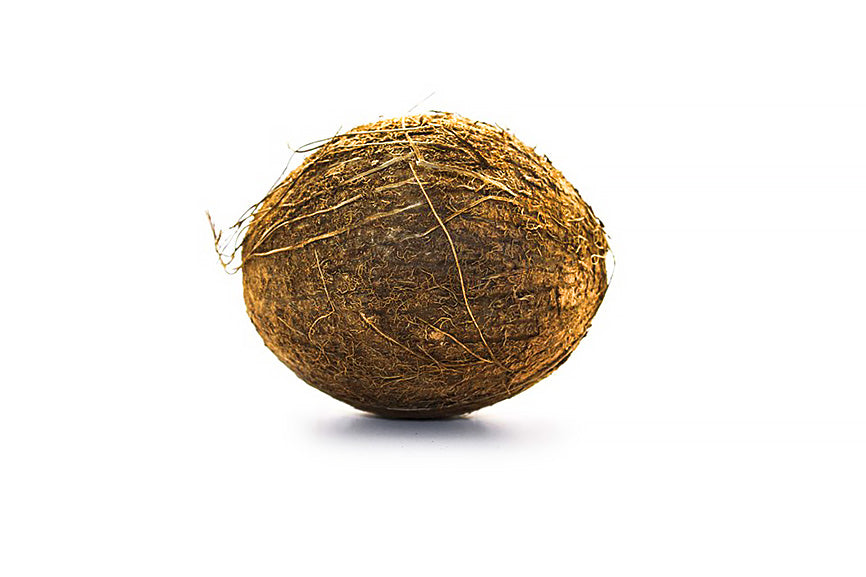
Another great coconut-oil-based product to watch out for: natural ear cleaner! A small dab of this on a cotton swab or ball will effectively cleanse Mr. Bark’s ears and help get rid of mites and infection. With regular use, no more insistent scratching and funky odors—a huge relief for the human who has to do the cleaning, too, yes?
With Great Superfood Comes Great Responsibility
Great digestive health, improved immunity, ravishing skin and coat—who wouldn’t want this for our dogs? But, as with all things, too much of a good thing is bad, bad, bad. Coconut oil may arguably be the best natural superfood for canine health and wellness, but overdosing your pup in the hopes of amplifying its beneficial effects is, to put it mildly, not the smartest thing to do.
Diarrhea and Flu-like symptoms are two of the most common side effects of excessive coconut oil ingestion.
Veterinarians recommend one teaspoon of organic coconut oil for every 10 pounds of body weight, but to prevent loose stools, make sure to introduce it gradually to your pooch’s diet. You can start with ¼ teaspoon, and gradually add to it over the course of 3 to 4 weeks to ensure no tummy protests and no intestinal acrobatics with greasy number two’s.
And hey, try not to go crazy while lathering it on your dog, either. Using this oil topically in proper amounts also ensures optimal absorption, with none of the sticky fur and icky mess.

While the possibility of these side effects may worry you, just remember: coconut oil IS safe for dogs, but what it does to your dog depends entirely on you using it in moderation. Proper introduction into your dog’s usual diet is key to prevent unwanted reactions—do it right, and you won’t have to deal with oily poop, a grumpy Fido, and on a more serious note, health risks and emergency trips to the clinic.
If in doubt, or if Spike has a history of, or ongoing treatment for any illness that think may be affected by changes in his diet, always consult your vet, and ask for advice on how you can incorporate the ever-dependable and healthy coconut oil into your everyday canine regimen.
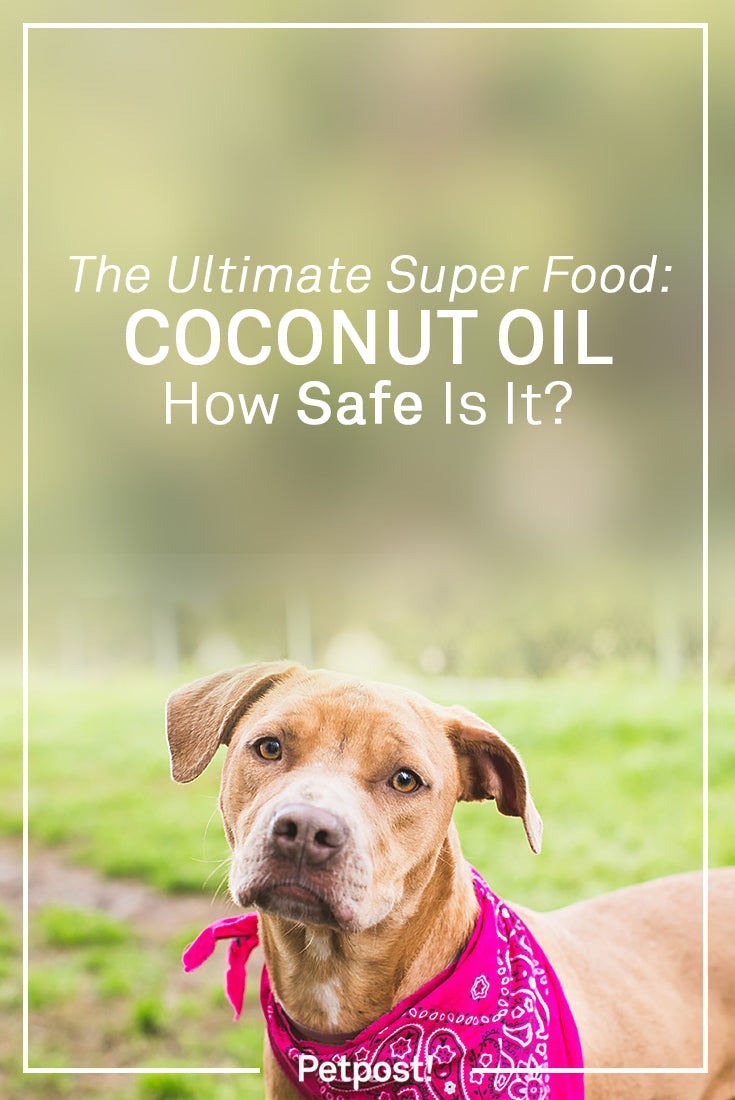


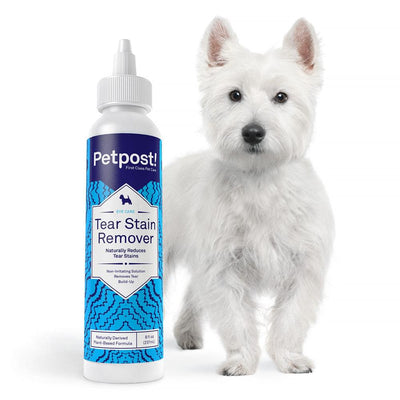






Leave a comment